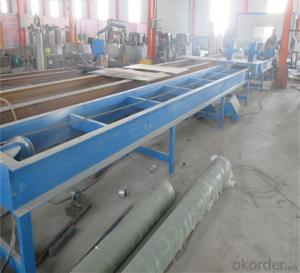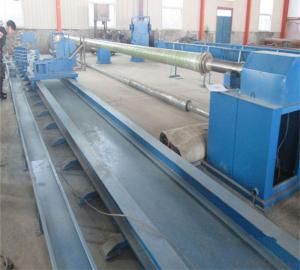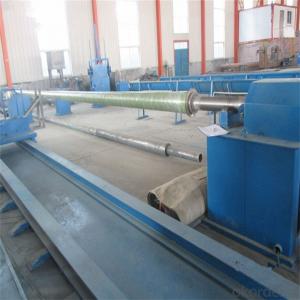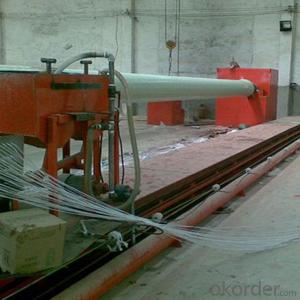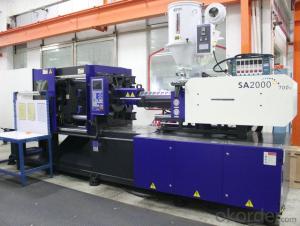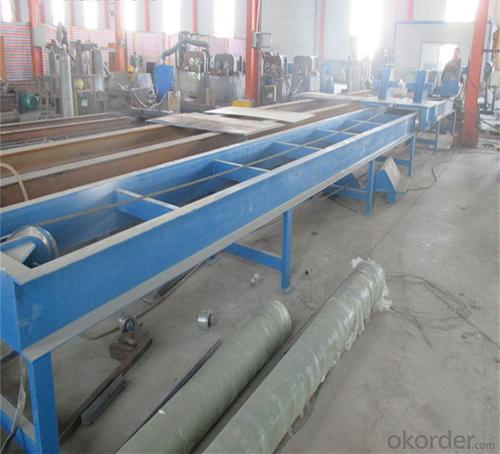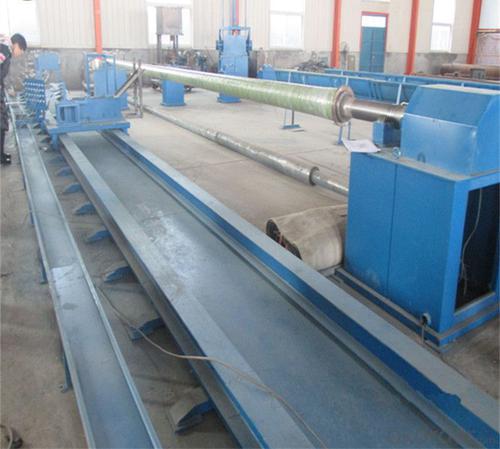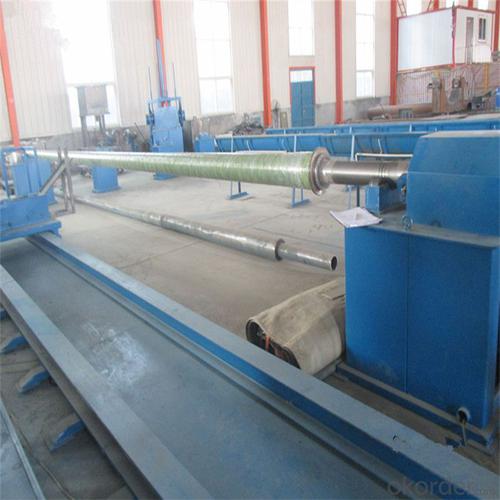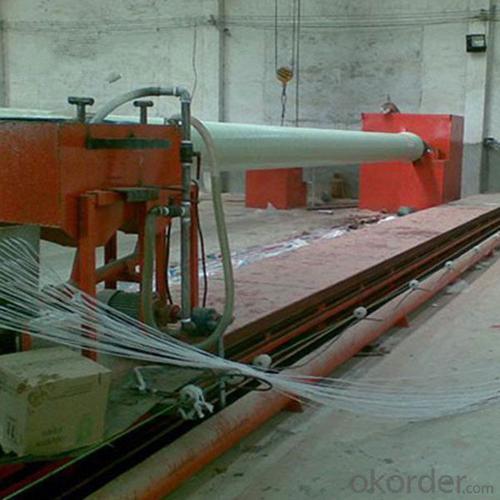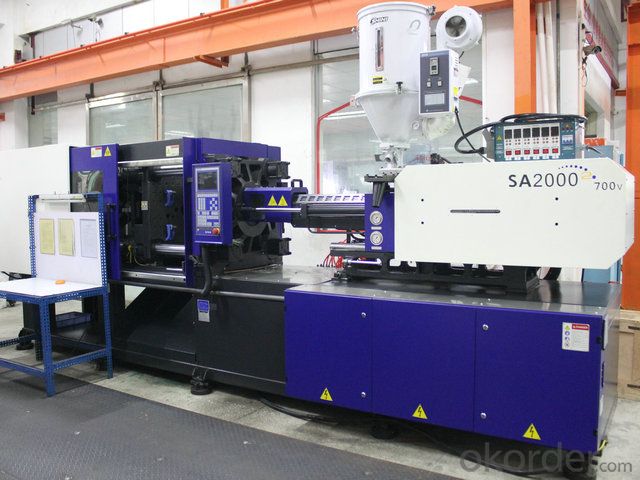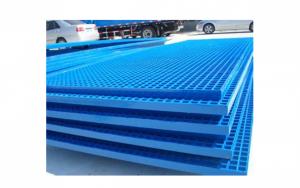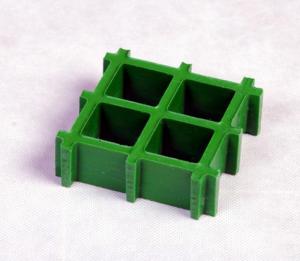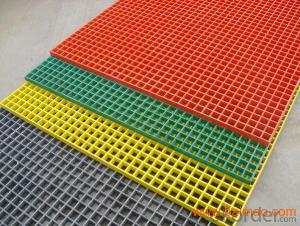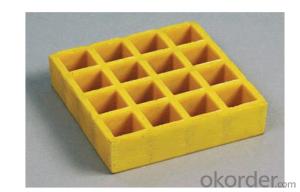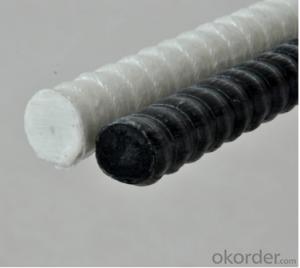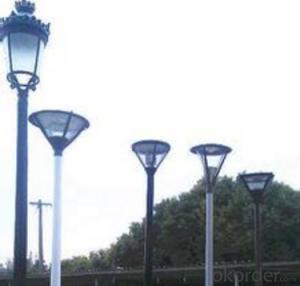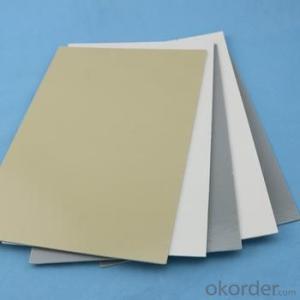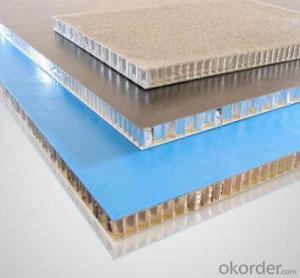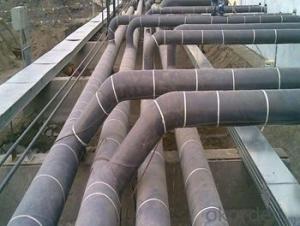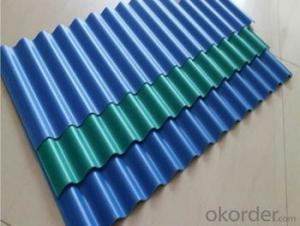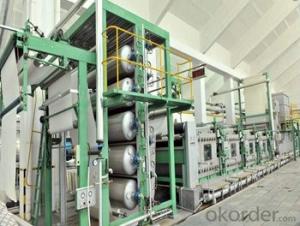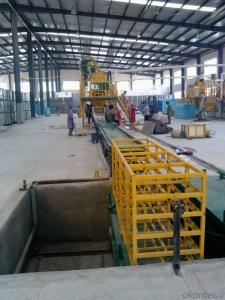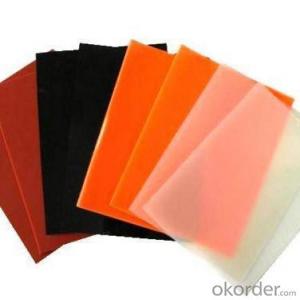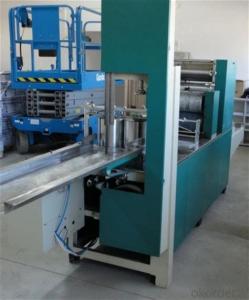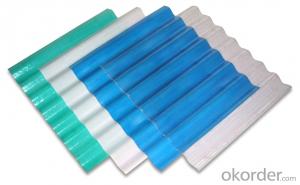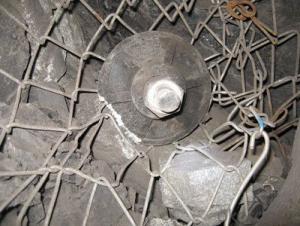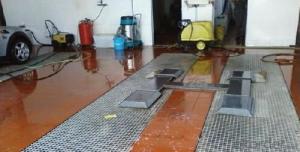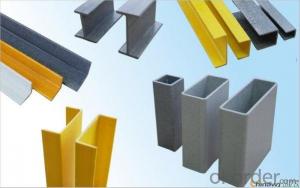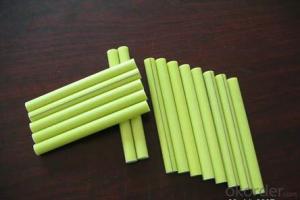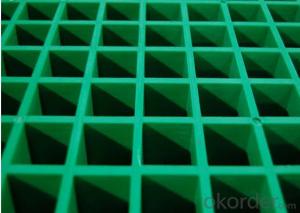FRP Pultrusion Profiles with Excellent Electromagnetism Property on Sales of New Design
- Loading Port:
- Tianjin
- Payment Terms:
- TT OR LC
- Min Order Qty:
- 1 m.t.
- Supply Capability:
- 300000 m.t./month
OKorder Service Pledge
OKorder Financial Service
You Might Also Like
PRODUCT DESCRIPTION
Pultruded grating is made by a particular assembly process, which using “I” shape as its main load-bearing and special rod to go through the bearing bar. Pultruded grating include the standard grating and the custom grating, the custom grating can be designed to meet customer’s requirement or special using condition by changing the shape, size and space of the bearing bars, the surface can be covered with lozenge panel, grit panel, or added the anti-slippery sand directly.
FRP pultruded grating has the most characteristics of molded grating, but it has its distinct advantages, it has very high fiberglass content in the loading direction, so it has very high load capability, it has more superiority when used at wide span, so that the basic support will be decreased and the project cost will be reduced accordingly.
SPECIFICATION
Thickness (mm) | Bar width (mm) | Open space (mm) | Open rate (%) | Approx weight (kg/m |
25.4 | 15.2 | 22.8 | 60 | 13.2 |
25.4 | 15.2 | 15.2 | 50 | 15.9 |
25.4 | 15.2 | 10.1 | 40 | 18.5 |
25.4 | 40 | 10.8 | 21 | 14.5 |
38.1 | 15.2 | 22.8 | 60 | 15.8 |
38.1 | 15.2 | 15.2 | 50 | 19.1 |
38.1 | 15.2 | 10.1 | 40 | 22.4 |
50.8 | 25.4 | 25.4 | 50 | 16.6 |
50.8 | 25.4 | 12.7 | 33 | 21.1 |
CHOICE FOR PULTRUDED GRATING
Resin: GP resin, ISO resin, VE resin, Phenol resin
Color choice: Yellow, gray, green, custom color
Surface choice: Groove surface, grit surface, lozenge cover surface
FEATURES
a. Anti-corrosion and anti-rust
b. Light weight and high strength
c. Anti-flammable
d. Anti- fatigue
e. Safe and anti-slippery
f. Anti-ageing
g. Easy of maintenance
h. Excellent electromagnetism property
i. Good economic benefit
FIELDS SERVED
Sewage treatment,
water supply and drainage,
chemical industry,
oil industry,
power engineering,
pulp and paper,
construction engineering,
spinning, marine engineering.
APPLICATION
Operation terrace,
stair walkway,
ground floor,
trench cover,
sidewalk,
foot bridge,
equipment safety fence,
scaffold.
COMPANT DESCRIPTION
CNBM,China National Building Materials Group is a state-owned enterprise in charge of administrative affairs in china building materials industry. Established in 1984, CNBM is a large group corporation of building materials with total assets of 25 billion RMB and a total staff of 30,000.CNBM now owns 200 subordinating firms of solely owned and joint-venture companies.
CNBM International Corporation is one subsidiary of CNBM, we focus on offering good-quality products,professional service and complete solution to our customers. Strong delivery capacity, advanced technology& management, strong financing capability and excellent after-sale service are our advantages in sharing international market.
FAQ
1.Q:Are you factory or trading company ?
A:We are Factory produce FRP machines and FRP products.
2.Q:If can customized by customers requirements?
A:yes,we can produce the machine with customized size.
3.Q:How about the payment?
A:We accept any kind of payment.
4.Q:What is the guarantee?
A:Gurantee is one year.
5.Q:If you can training?
A:yes ,we can training in our factory also can send engineers to your factory training.
PICTURES
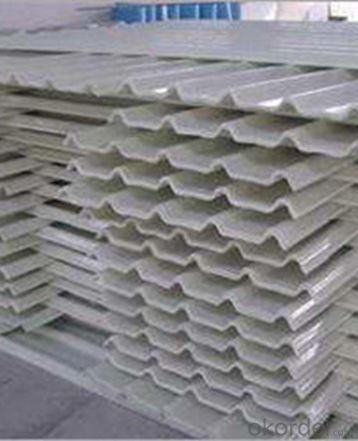
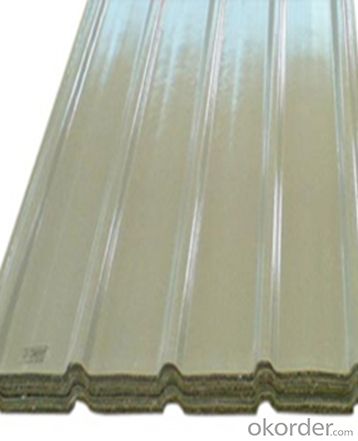
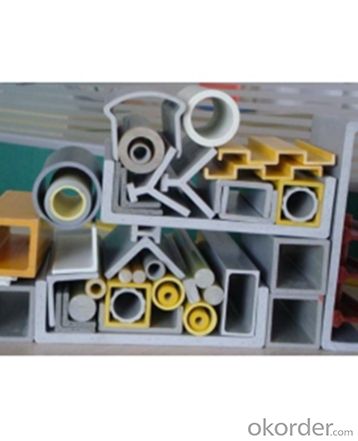
- Q: Are FRP pultrusion profiles resistant to ultraviolet radiation?
- Yes, FRP pultrusion profiles are generally resistant to ultraviolet radiation. The combination of the composite material and the resin used in pultrusion manufacturing provides excellent UV resistance, making them suitable for outdoor applications.
- Q: The difference between polyurethane pultruded profiles and glass reinforced plastic profiles
- Compared with other materials, pultrusion with polyurethane can produce a variety of benefits. The utility model can improve the content of the glass fiber in the product and greatly improve the strength of the product. For example, pultruded window frames made of glass fiber and polyurethane resin, the strength of the resulting window frames is 8 times higher than that of the PVC window frames, and the conductivity is 40 times lower than that of aluminum. Therefore, the insulation performance is much better.
- Q: Can FRP pultrusion profiles be used in the water treatment industry?
- Yes, FRP pultrusion profiles can be used in the water treatment industry. FRP (Fiber Reinforced Plastic) offers excellent corrosion resistance and durability, making it suitable for various applications in water treatment plants. FRP pultrusion profiles can be used in the construction of water tanks, pipes, pumps, and other equipment, providing a lightweight and high-strength alternative to traditional materials like steel. Additionally, FRP profiles are non-conductive and have low thermal conductivity, making them ideal for applications involving chemicals and extreme temperature variations commonly found in water treatment processes.
- Q: Do FRP pultrusion profiles require any special tools for installation?
- Yes, FRP (Fiber Reinforced Polymer) pultrusion profiles do require some special tools for installation. Pultrusion profiles are manufactured using a continuous process that involves pulling fibers through a resin bath and then into a heated die, resulting in a strong, lightweight, and corrosion-resistant material. To properly install FRP pultrusion profiles, some specific tools are commonly used. These tools include: 1. Cutting Tools: FRP profiles may need to be cut to specific lengths during installation. Special cutting tools, such as high-speed saws or abrasive wheels, are often used to ensure clean and precise cuts. 2. Drilling Tools: FRP profiles may require holes to be drilled for fasteners or other fittings. Special drill bits designed for working with composite materials are typically used to avoid damaging the profile while creating the necessary holes. 3. Fastening Tools: Depending on the application, FRP profiles may need to be fastened to other surfaces or structures. Special fasteners like stainless steel screws, bolts, or adhesives are commonly used to secure the profiles in place. 4. Joining Tools: In certain cases, FRP profiles may need to be joined together to create longer lengths or more complex shapes. Special joining techniques like bonding, riveting, or using mechanical connectors are employed to ensure a strong and secure connection. It is important to note that the specific tools required for installation may vary based on the project's complexity, size, and the manufacturer's recommendations. Therefore, it is always advisable to consult the manufacturer's installation guidelines or seek professional assistance to ensure proper installation and to maximize the performance of FRP pultrusion profiles.
- Q: Are FRP pultrusion profiles resistant to fire?
- Yes, FRP pultrusion profiles are inherently fire resistant. The combination of the polymer matrix and the reinforcing fibers used in the pultrusion process provides excellent fire resistance properties, making them a suitable choice for applications where fire safety is a concern.
- Q: How do FRP pultrusion profiles perform in seismic zones?
- FRP pultrusion profiles perform well in seismic zones due to their inherent lightweight and high-strength properties. These profiles have excellent resistance to earthquakes as they are designed to be flexible, which allows them to absorb and dissipate energy during seismic events. Additionally, FRP materials are non-corrosive, which makes them more durable in seismic zones compared to traditional construction materials.
- Q: How do FRP pultrusion profiles perform in extreme cold temperatures?
- FRP pultrusion profiles generally perform well in extreme cold temperatures. The composite materials used in their construction have low thermal conductivity, which helps in retaining their mechanical properties even in freezing conditions. However, it is important to consider the specific resin system and reinforcement used in the profiles, as different formulations may exhibit slightly varying performance characteristics. Overall, FRP pultrusion profiles are known for their excellent resistance to temperature variations, making them suitable for use in cold environments.
- Q: Can FRP pultrusion profiles be used in the construction of industrial flooring?
- Yes, FRP (Fiber Reinforced Polymer) pultrusion profiles can be used in the construction of industrial flooring. FRP pultrusion profiles are made from a composite material that consists of a combination of strong fibers, typically glass or carbon, and a polymer resin. This combination of materials provides exceptional strength, durability, and corrosion resistance, making FRP profiles highly suitable for industrial flooring applications. One of the main advantages of FRP pultrusion profiles is their high strength-to-weight ratio. This makes them lighter and easier to handle compared to traditional materials such as steel or concrete. Additionally, FRP profiles are non-conductive and non-magnetic, which can be beneficial in certain industrial environments. FRP pultrusion profiles are also highly resistant to various chemicals, moisture, and UV radiation, making them ideal for use in harsh and corrosive environments. They do not rust or corrode like steel and are not affected by moisture or rot like wood, ensuring long-lasting performance and minimal maintenance requirements. Furthermore, FRP profiles can be customized and manufactured in different shapes, sizes, and load-bearing capacities to meet specific industrial flooring requirements. They can be designed to withstand heavy loads, impact, vibration, and other dynamic forces commonly encountered in industrial settings. In summary, FRP pultrusion profiles offer numerous advantages that make them suitable for the construction of industrial flooring. Their high strength, durability, corrosion resistance, and customizable nature make them a reliable and cost-effective choice for industrial flooring applications.
- Q: Are FRP pultrusion profiles resistant to moisture?
- FRP pultrusion profiles possess an exceptional ability to withstand moisture. During the manufacturing process, fiberglass reinforcements are saturated with a resin matrix, usually polyester, vinyl ester, or epoxy. These resins naturally repel moisture, making FRP pultrusion profiles well-suited for a wide range of applications that involve exposure to moist or humid environments. Unlike conventional materials like wood or steel, FRP does not absorb water, eliminating the risks of swelling, warping, or corrosion. This moisture resistance is particularly advantageous in sectors such as construction, infrastructure, and the marine industry, where profiles may encounter rain, saltwater, or high humidity. Moreover, the resin matrix employed in FRP pultrusion can be fortified with additives or coatings to enhance its moisture resistance further. For instance, UV inhibitors can be incorporated to safeguard against degradation caused by sunlight exposure. Fire-retardant coatings can also be applied to fulfill specific safety requirements. In summary, FRP pultrusion profiles offer outstanding moisture resistance, establishing them as a resilient and dependable choice for applications where moisture exposure is a concern.
- Q: Are FRP pultrusion profiles resistant to humidity or moisture?
- Yes, FRP pultrusion profiles are highly resistant to humidity or moisture due to their non-porous nature and the use of corrosion-resistant materials.
Send your message to us
FRP Pultrusion Profiles with Excellent Electromagnetism Property on Sales of New Design
- Loading Port:
- Tianjin
- Payment Terms:
- TT OR LC
- Min Order Qty:
- 1 m.t.
- Supply Capability:
- 300000 m.t./month
OKorder Service Pledge
OKorder Financial Service
Similar products
Hot products
Hot Searches
Related keywords
